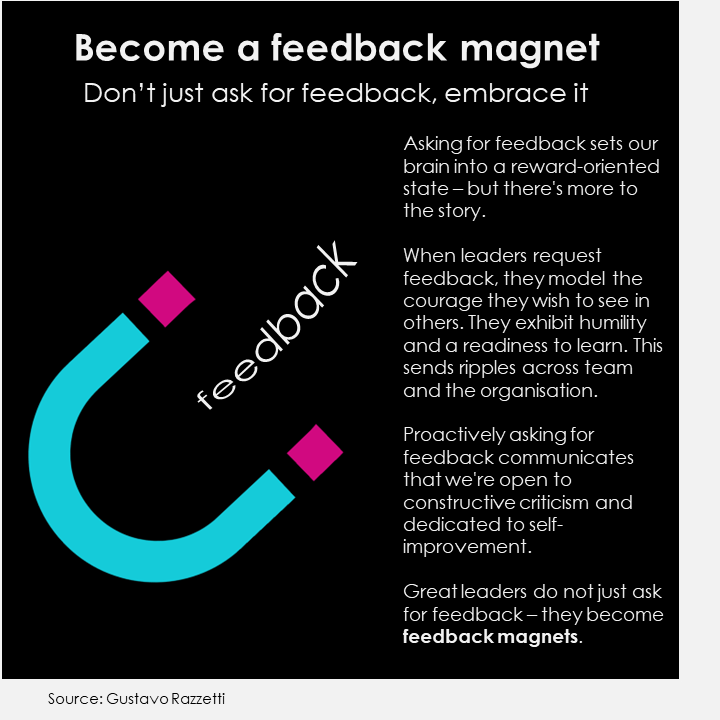Why feedback culture needs more than giving
“Feedback culture” — everyone wants it, some even say they’ve got it, but very few companies truly have it.
Many organisations invest in empowering people to give feedback. They build models and shared language for giving feedback effectively and consistently.
But here’s the problem: the focus is almost always on giving, not on seeking and receiving.
Very few companies we’ve worked with invest in how to actively seek and receive feedback.
The missing skill: seeking feedback
It’s strange when you think about it. If businesses truly want a feedback culture, surely seeking and receiving feedback is just as important. We all have blind spots, after all.
Research shows that employees are more receptive to feedback when they request it, compared to when it’s forced upon them (Razzetti). Coaching people to ask for feedback is crucial to replace a know-it-all culture with a learn-it-all one.
Leading by example
Patagonia built a feedback culture by changing this dynamic. They trained managers to default to asking for feedback. By modelling being good receivers, leaders encouraged others to ask for the gift of feedback too.
When you ask for feedback, you promote generosity. You show you’re open to learning and growing — and you make it okay for others to do the same.
Are your people as good at receiving feedback as they are at giving it?
Feedback as a gift
You’ve probably heard the saying: feedback is the breakfast of champions. But how often do you actively go out of your way to seek it? And when you do receive it, are you set up to make the most of it?
People often give us gifts in conversations — but we either don’t notice them or we leave them unopened.
A gift in this context is something a person says that, if acknowledged and explored, can deepen your understanding. It can help you see how someone is feeling, uncover their perspective, and work together better.
Some gifts might come as compliments or subtle feedback. If someone says, “You did a great job in that sales meeting,” the compliment itself isn’t the gift — the gift is the chance to explore why they thought it was great.
You could respond:
“Thank you. Out of curiosity, what was it specifically that I did that was great? I’m asking because I’m always looking to improve.”
Sometimes gifts come poorly wrapped. They may be delivered clumsily or seem to come from a bad place. But the skill is to open all gifts and explore them fully.
Becoming a feedback magnet
Building a feedback culture doesn’t happen through one-off initiatives. You need:
- Psychological safety
- Skills to give and receive feedback
- Habits that create regular spaces for open dialogue
And yes — there’s more to it than that. But start here, and you’ll be on your way to becoming a true feedback magnet.




